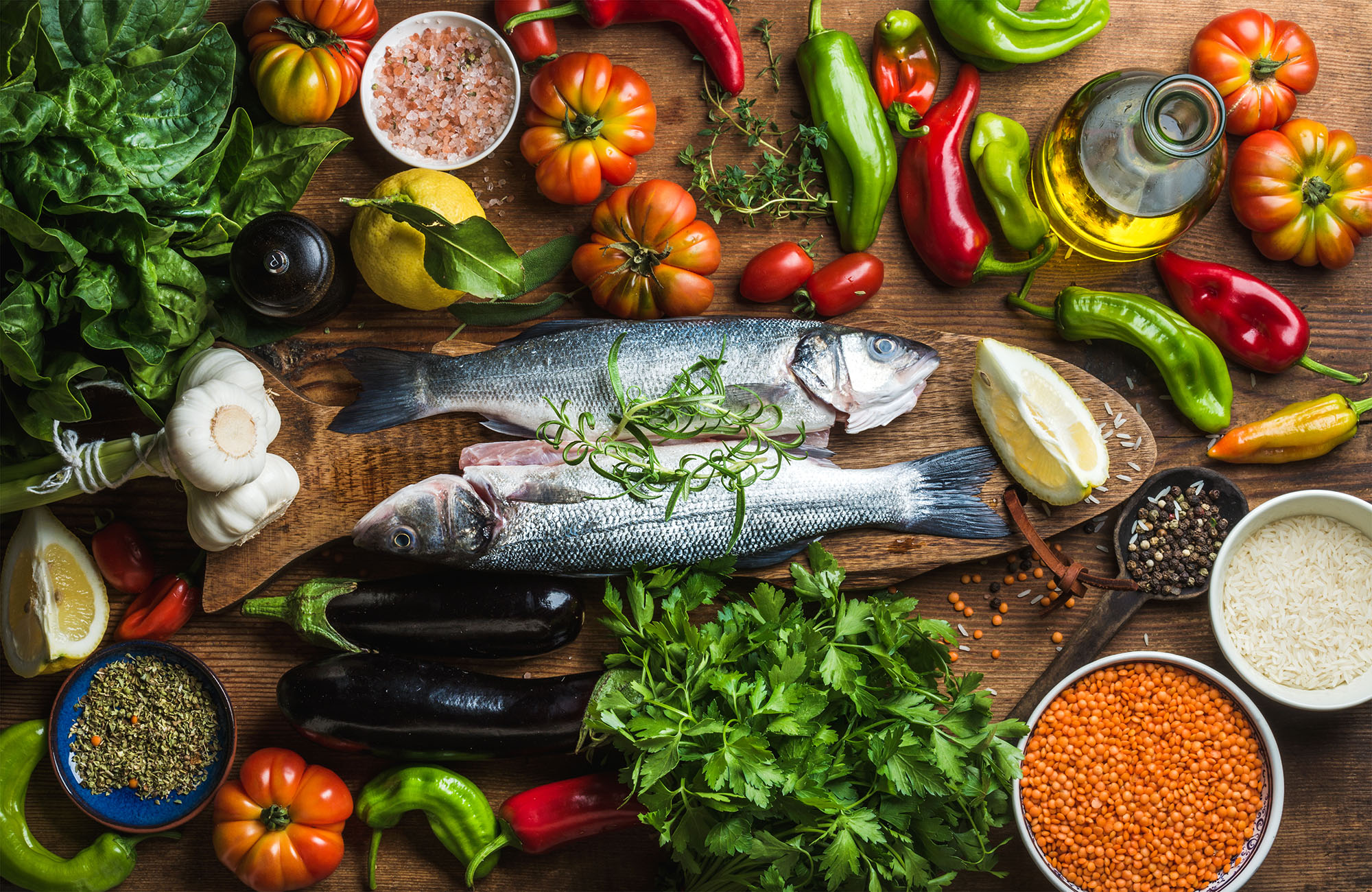Weighing In On Diets: The Mediterranean Diet
Nutrition | May 06, 2014
The Mediterranean Diet is less about a strict dietary regimen and more about making lifestyle choices regarding food and nutrition. The diet is based around the eating habits of the various cultures inhabiting the Mediterranean including Greece, Lebanon, Spain, etc. The diet first emerged in the 1950’s and 1960’s from research done by Ancel Keys and later by Dr. Walter Willet. According to Dr. Anthony Komaroff at Harvard University, early observational studies done by Keys and Willet indicated that the eating patterns and habits of people living along the Mediterranean lead to significantly lower risk of heart disease and some forms of cancer. More recently, a clinical study published in The New England Journal of Medicine confirmed the health benefits of following the Mediterranean Diet.
The foundation of the Mediterranean Diet is based around a high consumption of fruits, vegetables, whole grains and monounsaturated fats. The high level of antioxidants in fruits and vegetables provides tremendous health benefits for heart health and for fighting diseases such as cancer. The main source of monounsaturated fats comes from olive oil, fish and nuts. These sources of monounsaturated fats are considered healthy fats, are high in omega-3 amino acids, and have been proven to lower cholesterol and help improve cardiovascular health. Dairy also plays a significant role in the Mediterranean Diet in the forms of cheese, yogurt and milk. The diet even allows for the moderate consumption of wine because of its demonstrated benefit for cardiovascular health as well.
What the Mediterranean Diet greatly limits are the consumption of saturated fats and trans fats such as butter and margarine, processed sugar and red meat. Of course, it should not come as much of a surprise that limiting these foods, regardless of what diet we follow, will improve our health and overall wellbeing.
Unlike stricter diets that focus on either appearance or performance, the Mediterranean Diet allows for abundance. Most of the studies focus on health and longevity, not necessarily on looking good, getting lean or running a marathon. With that in mind, if your goal is fat loss and building muscle, basic principles of dietary fitness still apply.
















Private Member |
Zuzka will you be coming out with your nutrition guide soon?
Private Member |
Zuzka. Do you follow med diet? Do you carb cycle?
Janyne
Private Member |
I would love to know if she does carb cycle. I was thinking to do but since the workouts are mostly full body workouts it is difficult to do in the way I was thinking – more carbs on leg days and low carbs on upper body days…
Private Member |
Carb Cycling can help you break through plateaus and is a great way to maintain a lean physique throughout the year. Below is a blog link which I wrote about carb cycling and how I incorporate it into my nutritional routine.
http://www.fitforrockin.com/fit-tips/slow-carb-or-high-carb/
Private Member |
I do carb cycling following Shaun Hadsall approach. I love his scientific and knowledgeable approach. The carb/starch up on resistance training days (would be more ZWOW) and deplete days when more cardio.
Private Member |
Yeah, still looking forward for your book recipes 🙂
Cheers
Private Member |
I like Michael Pollan’s philosophy and none of this ‘rules’/’cycles’/’diets’/body obsession….”eat food, not too much, mostly plants”…. and most of all focus on your family and friends! Nurturing relationships are the one thing you won’t regret spending time on. So enjoy your food creatively without worshiping it and share it with friends. 🙂
Private Member |
agreed!
Private Member |
Wow… That is one of the best posts I have read in a long time.
Private Member |
Sounds like the most logical approach. Carb cycle wha? I mean eat real food, even potatoes that are white and move your body every day
Private Member |
Zuzkaaaaaaa! We are waiting for your nutrition guide!!
Private Member |
Hi Zuzka, I think you would really enjoy reading “The China Study.” It is a very informative book about nutrition and I think you would be very interested in it. It is a ver comprehensive study that was done by some of the leading scientists in America as well as from Europe and China. It is easy to understand and is a real eye opener about what causes a lot of diseases and cancer in the body. I think it is a must read for anybody that is interested in diet and nutrition. xo Zoe